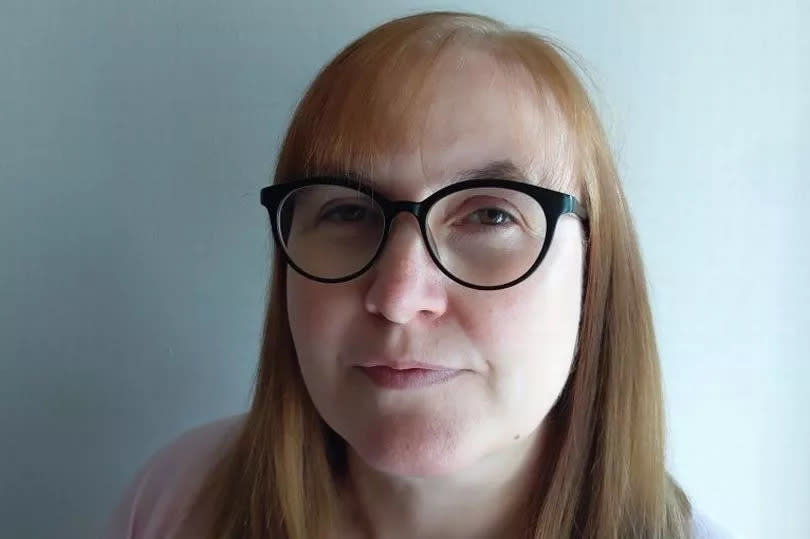Larne mum on the mental ill-health ‘endemic’ faced by Northern Ireland's unpaid carers

A Co Antrim woman has opened up about the toll of providing unpaid care for members of her family for over 15 years on her mental health.
Deborah McAllister lives in Larne and cares for her mum, who has dementia, and her daughter, who has complex needs.
Two-thirds (66%) of people like Deborah who have provided unpaid care for sick or disabled family members or friends in Northern Ireland have suffered mental ill-health because of their caring role, according to new research published today.
READ MORE: Mum says 'invisible workforce of unpaid carers' are being left behind by new law
READ MORE: NI mums on the harsh reality and ‘every day struggle’ of unpaid carer poverty
In the YouGov poll, which was commissioned by Carers NI to mark the beginning of this year’s Carers Week, 25% of current or former unpaid carers said that caring for their loved one had had a very negative impact on their mental health, with a further 41% saying it had a slightly negative impact.
Campaigners say that mental health challenges have become ‘endemic’ among Northern Ireland’s unpaid carers and called on the Department of Health to fund the regular breaks and other support services carers need to better protect their mental wellbeing.
Deborah said: “I’ve been an unpaid carer for over 15 years and at one time that meant caring for three family members at the same time. I was diagnosed with over-functioning anxiety, PTSD and compassion fatigue as a direct result of my unpaid caring role.
“I actually had to retire from my career as a nurse because of ill-health. I love my mum and daughter, but caring has taken such a toll. I’m emotionally and physically exhausted all of the time. It’s very difficult to ever improve your mental health when you’re caring, because there are never any breaks.
“I also get no financial support for my caring role and having to live on a little pension only adds to the anxiety. Many of my friends are caring for loved ones and they are all sick too. You’re surrounded by friends with poor mental health. They’re the only people who really understand what it is like.”

Angela Phillips, Senior Policy Officer at Carers NI, said: “Mental ill-health has become endemic among Northern Ireland’s unpaid carers and that really is no surprise when so many of them are waiting months or years for access to support and the opportunity for a break.
“Social care and respite provision across Health Trusts is just not meeting demand and the pressure that puts on carers is leaving them mentally worn out and in the grips of anxiety, stress and depression every day.
“In the worst cases, carers are reporting thoughts about self-harm and suicide, and that should be serving as a screaming wakeup call that the health system isn’t doing enough.
“This year’s Carers Week needs to be about delivering ring-fenced funding for the breaks and other services carers need to protect their mental health.”
The poll also found that 44% of current or former carers in Northern Ireland have suffered negative impacts on their physical health. Close to half (47%) said caring had negatively impacted their finances and savings, while 48% said their job and ability to go to work had been negatively affected.
In a statement, the Department of Health said it acknowledges the vital role played by carers and is committed to raising awareness of the role and ensuring they continue to be supported and valued.
A DoH spokesperson added: "The Department has established a Social Care Collaborative Forum to commence delivery of the reforms included in the Reform of Adult Social Care consultation. One of the Forum’s workstreams is specific to carers and is examining a range of issues and how we can work together to improve them.
"Mental health services in Northern Ireland are provided in line with the regional stepped care model and are available to everyone. All who need care and treatment, including carers, will be provided with services that are clinically appropriate.
"Across all Trusts, short breaks provision has been identified as an area of increasing need, with demand extending beyond the existing capacity within relevant facilities. Health and Social Care Trusts provide short breaks via multiple arrangements. In addition, the use of Direct Payments enables carers to determine more bespoke arrangements for their particular needs.
"The Department is finalising a draft service model for learning disability, which includes several outcomes and actions to expand respite/short breaks and day services. To better support children with disabilities, work is underway to expand and diversify short breaks services."
For all the latest news, visit the Belfast Live homepage here and sign up to our daily newsletter here.

 Yahoo News
Yahoo News 
